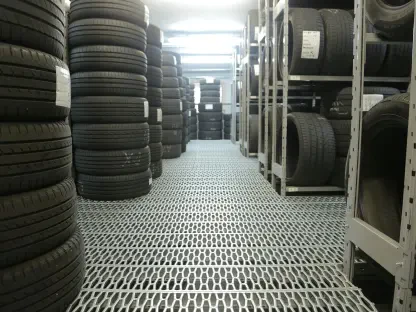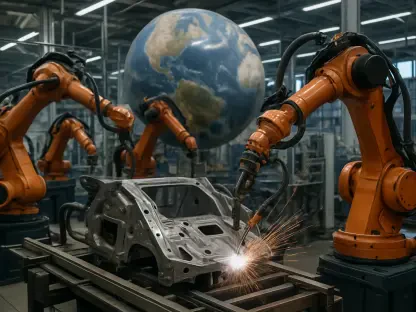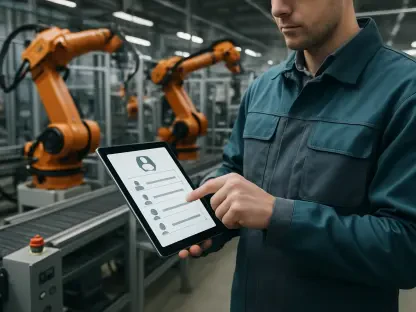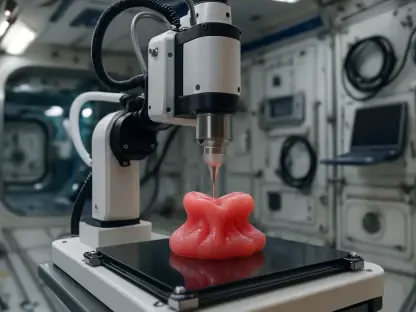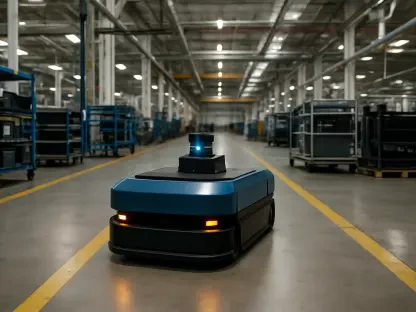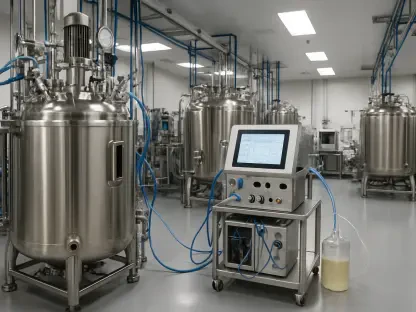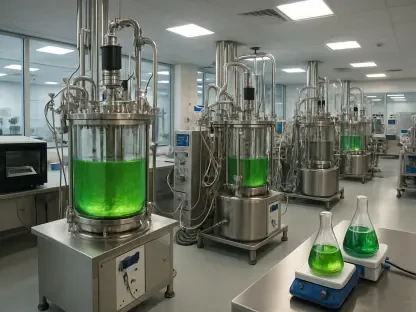What if the secret to dominating the manufacturing sector lies not in slashing budgets or ramping up output, but in tapping into a technology that learns, adapts, and predicts with uncanny precision? Artificial intelligence (AI) is no longer a sci-fi fantasy—it’s revolutionizing factory floors across the globe. From averting catastrophic equipment failures to ensuring worker safety, AI is paving the way for a smarter, more efficient industrial landscape. Yet, countless manufacturers remain on the sidelines, wary of change. This hesitation could spell the difference between thriving and merely surviving in a cutthroat market.
The significance of this shift cannot be overstated. AI stands as a game-changer, addressing critical challenges like supply chain chaos and labor shortages while unlocking unprecedented levels of productivity. As global competition intensifies, adopting this technology is not a luxury but a necessity for manufacturers aiming to stay relevant. This exploration delves into how AI is reshaping the industry, spotlighting real-world impacts, actionable strategies, and the undeniable urgency of embracing this transformation.
A New Industrial Dawn: Is Manufacturing Ready for AI?
The manufacturing world stands at a pivotal crossroads, with AI emerging as the cornerstone of a new industrial era. Factories once reliant on manual oversight and rigid automation are now witnessing machines that think and adapt in real time. This technological leap promises to redefine efficiency, slashing waste and boosting output in ways previously unimaginable. Yet, reluctance persists among many in the sector, driven by fears of high costs and complex integration.
This hesitation overlooks a critical reality: AI is already here, reshaping competitive dynamics. Companies that lag risk losing ground to rivals who harness data-driven insights and predictive capabilities. The question is no longer whether to adopt AI, but how quickly and effectively it can be embedded into existing systems to secure a lasting edge.
The Pressing Need for AI Amid Global Manufacturing Challenges
Global challenges like supply chain disruptions and escalating operational costs have placed immense strain on manufacturers. AI offers a lifeline, optimizing workflows and minimizing downtime through intelligent resource allocation. With the manufacturing sector expected to expand rapidly over the next few years, from 2025 onward, embracing AI could distinguish industry frontrunners from those left struggling to keep pace.
Beyond operational fixes, this technology addresses urgent demands for customization and speed in consumer markets. It also enhances safety protocols, ensuring compliance with stringent regulations while protecting workforces. In an environment of constant flux, AI equips manufacturers to navigate economic uncertainties and technological disruptions with confidence and agility.
How AI Revolutionizes Key Manufacturing Domains
AI’s transformative power touches every corner of manufacturing, delivering measurable benefits across diverse areas. Data management forms the bedrock, enabling real-time analysis to preempt errors and adapt to fluctuating conditions on the factory floor. Meanwhile, cybersecurity, bolstered by AI, shields interconnected systems from escalating threats, with tools like encryption becoming indispensable in safeguarding operations.
Collaborative robots, or cobots, powered by AI, redefine workplace safety by handling dangerous tasks and enhancing quality control through advanced vision systems. Preventive maintenance, driven by machine learning, predicts equipment issues before they arise, extending machinery lifespan with customized insights based on historical data. Additionally, forward-looking tools like demand forecasting and digital twin simulations empower manufacturers to anticipate market shifts and test strategies in virtual environments, ensuring readiness for whatever lies ahead.
Industry Perspectives: AI’s Tangible Impact on Manufacturing
Insights from industry leaders highlight AI’s indispensable role in shaping modern manufacturing. A product manager at a leading automation firm has noted, “AI isn’t just a passing phase—it’s the bedrock of tomorrow’s factories, driving efficiency and securing operations.” Research backs this up, showing that predictive maintenance powered by AI can cut downtime by as much as 30%, while cobot integration has significantly reduced workplace injuries in various sectors.
Real-world examples further illustrate this impact. A mid-sized factory reported a striking 25% surge in productivity after deploying AI-driven quality control systems. Such stories and statistics reveal a clear truth: the benefits of AI are not speculative but proven, offering concrete advantages to those bold enough to adopt it.
Actionable Strategies for Effective AI Adoption in Manufacturing
Integrating AI into manufacturing doesn’t demand an overnight overhaul but a thoughtful, phased approach. The first step lies in establishing a solid data infrastructure, investing in tools and skilled teams to ensure data accuracy and accessibility for AI applications. Cybersecurity must also take center stage, with robust measures like firewalls and compliance with emerging regulations to protect both IT and operational systems.
Pilot programs offer a practical entry point, testing AI in targeted areas such as cobot deployment for repetitive tasks or predictive maintenance for critical equipment, using metrics like Mean Time Between Failures to tailor solutions. Aligning these initiatives with specific business objectives—be it waste reduction or enhanced forecasting—ensures focused efforts and maximizes returns. These steps provide a clear path for manufacturers to transition into an AI-driven era with minimal disruption and optimal impact.
Reflecting on AI’s Journey in Manufacturing
Looking back, the journey of AI in manufacturing unfolded as a story of adaptation and resilience. Factories that once grappled with skepticism gradually witnessed the technology’s potential to transform chaos into order, turning inefficiencies into streamlined processes. Each milestone, from safer workplaces to predictive insights, marked a step toward a more innovative industrial landscape.
The path ahead demands a proactive stance. Manufacturers need to prioritize building robust data systems and fortifying cybersecurity as foundational elements. Exploring pilot projects in specific operational areas offers a low-risk way to test AI’s capabilities, while aligning efforts with clear goals ensures sustained progress. Embracing this technology with strategic intent promises not just survival, but a redefined standard of excellence in the ever-evolving world of manufacturing.


